This article explores various legal case types in the U.S. and offers expert guidance on finding qualified lawyers in Fort Worth, Texas, and other major cities. Navigating the legal landscape can be daunting, but understanding the types of cases and knowing how to find the right attorney can make all the difference.
Personal injury cases are among the most prevalent legal disputes in the U.S., encompassing incidents like car accidents, slip and falls, and workplace injuries. To find a qualified attorney, consider looking for someone with a proven track record in personal injury law. Utilize platforms like Avvo or Martindale-Hubbell to check ratings and reviews. Look for attorneys who offer free consultations, as this allows you to gauge their expertise without financial commitment.
Medical malpractice claims involve negligence by healthcare professionals that results in harm. These cases can be intricate, requiring attorneys with specialized knowledge. When searching for a lawyer in Fort Worth, ensure they have experience in medical malpractice and check their success rate in similar cases. Red flags include a lack of transparency about fees or a history of unresolved cases.
Breach of contract cases typically arise in business contexts, where one party fails to fulfill their obligations. To find a competent attorney, seek someone who specializes in contract law and has experience dealing with similar disputes. Look for credentials such as membership in the American Bar Association and positive reviews from past clients.
Property disputes can include boundary issues and landlord-tenant conflicts. When selecting an attorney, ensure they have a strong background in property law. Websites like FindLaw can help you locate lawyers with specific expertise. Avoid attorneys who make unrealistic promises or have poor communication skills.
Landlord-tenant disputes often arise from issues such as eviction or security deposit disputes. To find knowledgeable representation, look for attorneys who specialize in landlord-tenant law. Consider consulting local bar associations for recommendations and check for any disciplinary actions against the attorney.
Defamation cases involve false statements that harm someone’s reputation. When looking for legal representation, choose an attorney with a strong background in media law or defamation cases. Review their previous case outcomes and ensure they have a strategy tailored to your specific situation.
Employment disputes can stem from wrongful termination, discrimination, or harassment. Seek an attorney who specializes in employment law and has experience with cases similar to yours. Platforms like LinkedIn can provide insights into an attorney’s background and professional connections.
Product liability cases involve injuries caused by defective products. When searching for an attorney, look for someone with experience in handling complex product liability cases. Check their credentials and past successes, and consider consulting with consumer protection agencies for additional guidance.
Wrongful death claims can be emotionally taxing and legally complex. It’s crucial to find an attorney who understands the sensitivities involved in such cases. Look for lawyers with a strong track record in wrongful death claims and those who offer compassionate support throughout the legal process.
Class action lawsuits allow groups to sue for similar grievances. When seeking an attorney for a class action, ensure they have experience in this area and a history of successful outcomes. Check for their ability to manage large-scale litigation effectively.
Assault and battery cases can lead to serious legal consequences. When selecting an attorney, ensure they have experience with criminal defense and civil suits. Look for lawyers who are transparent about their approach and offer a clear strategy for your case.
Drug offenses vary widely in severity and legal consequences. It is essential to find a competent attorney who specializes in drug law. Seek referrals from trusted sources and look for attorneys with a history of favorable outcomes in drug-related cases.
Theft and burglary cases can involve serious legal ramifications. When searching for an attorney, prioritize those with experience in criminal defense. Review their case history and seek consultations to assess their compatibility with your needs.
Fraud and embezzlement cases require specialized legal knowledge. Look for attorneys who have dealt with white-collar crime and have a strong understanding of financial regulations. Check their credentials and seek reviews from previous clients to gauge their effectiveness.
Murder and homicide cases are among the most serious criminal offenses. Finding a skilled defense attorney is crucial. Look for lawyers with extensive experience in criminal law and a history of successful defenses in serious cases. Transparency about their approach and fees is also essential.
DUI/DWI charges can lead to severe penalties. When selecting an attorney, choose someone who specializes in DUI cases and has a strong understanding of local laws. Look for a lawyer who is willing to explain the legal process and your options clearly.
Domestic violence cases often require immediate legal intervention. It’s important to find an attorney who is empathetic and experienced in handling sensitive cases. Look for lawyers who provide a supportive environment and have a track record of obtaining protective orders for clients.
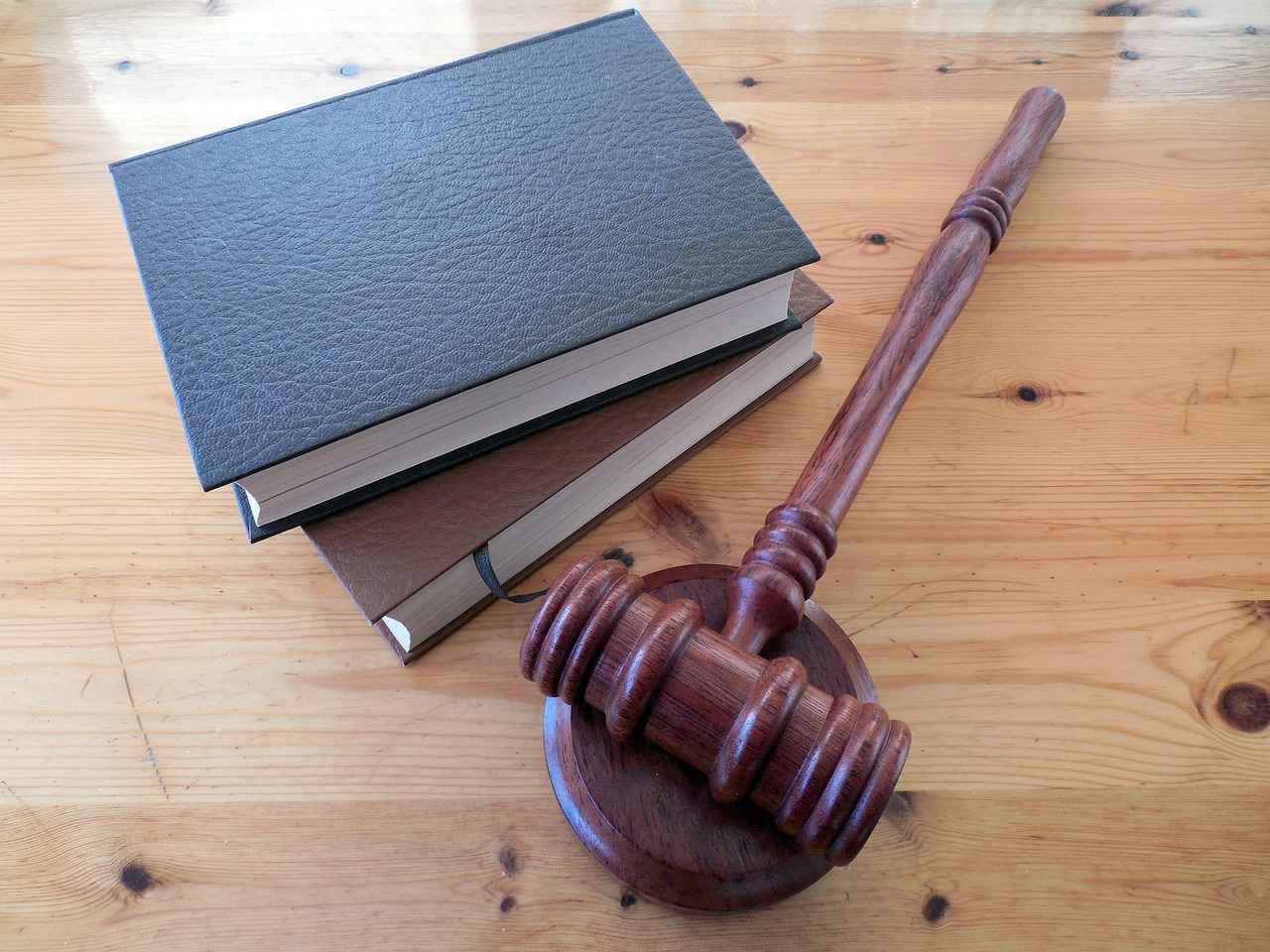
Understanding Personal Injury Cases
In the United States, personal injury cases rank among the most prevalent types of legal disputes. These cases arise when an individual suffers harm due to the negligence or wrongful actions of another party. Common examples include automobile accidents, slip and fall incidents, workplace injuries, and medical malpractice. Understanding what constitutes a personal injury is crucial for anyone considering legal action.
To establish a personal injury claim, the injured party must demonstrate that the other party had a duty of care, breached that duty, and that this breach directly caused the injury. For instance, in a car accident case, the driver must have been negligent—such as speeding or texting while driving—resulting in harm to another driver or pedestrian.
When pursuing a personal injury case, it is essential to find the right attorney who specializes in this field. Here are some practical steps to help you in your search:
- Research Local Attorneys: Start by searching for personal injury lawyers in your area. Websites like Avvo and FindLaw provide directories of attorneys along with ratings and reviews.
- Check Credentials: Look for lawyers who are members of professional organizations such as the American Association for Justice or your state’s bar association. These affiliations indicate a commitment to ongoing education and professional standards.
- Schedule Consultations: Most personal injury attorneys offer free initial consultations. Use this opportunity to discuss your case, ask questions, and assess the attorney’s communication style and expertise.
- Evaluate Experience: Inquire about the lawyer’s experience with cases similar to yours. An attorney with a proven track record in personal injury cases will be more adept at navigating the complexities of your claim.
- Discuss Fees: Personal injury lawyers typically work on a contingency fee basis, meaning they only get paid if you win your case. Clarify the percentage they will take and any additional costs that may arise during the legal process.
It is also vital to be aware of red flags when hiring a personal injury attorney. Avoid lawyers who make unrealistic promises or guarantee specific outcomes, as no attorney can predict the result of a case with certainty. Additionally, be cautious of those who pressure you into signing contracts or settling quickly without fully discussing your options.
By taking the time to research and evaluate potential attorneys, you can increase your chances of finding a qualified legal professional who will advocate effectively for your interests in a personal injury case.
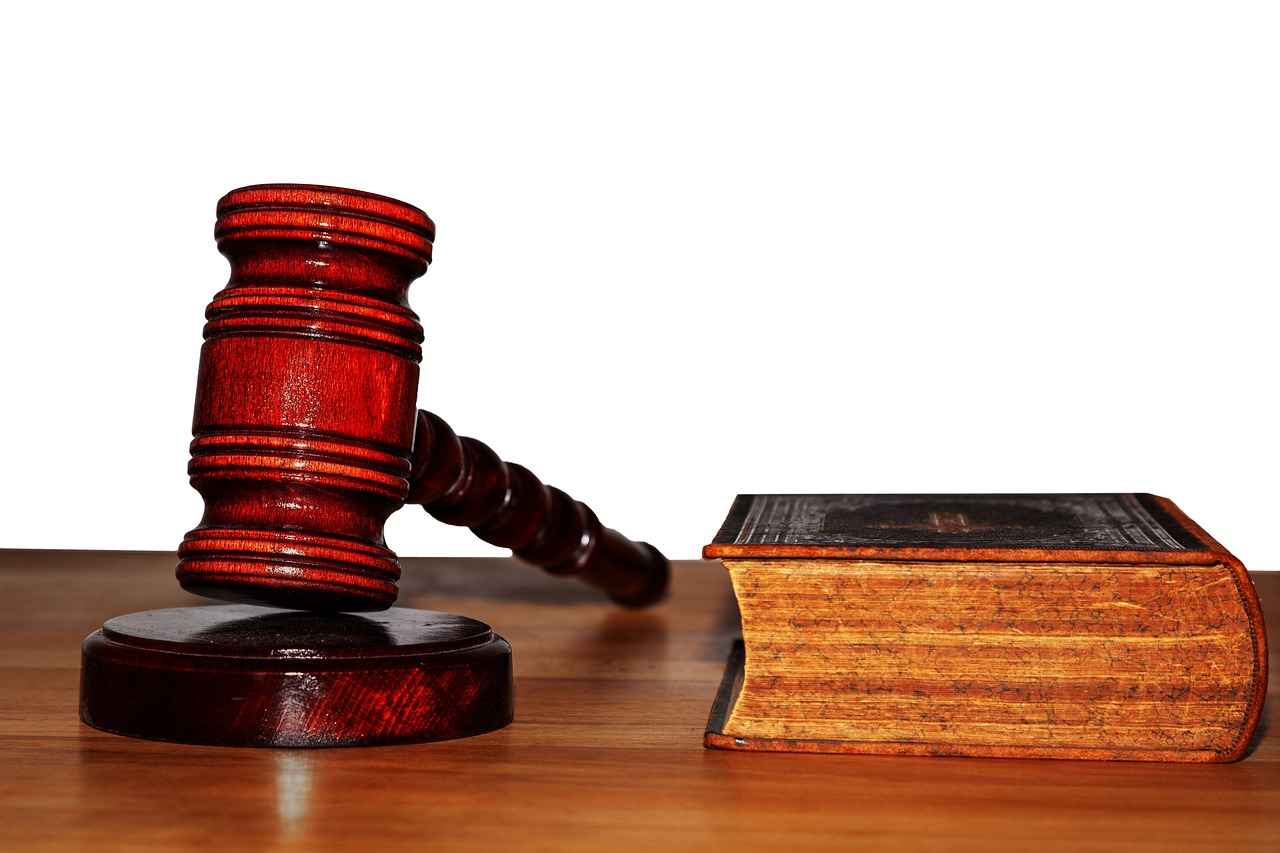
Navigating Medical Malpractice Claims
Medical malpractice claims represent a significant aspect of personal injury law, often encompassing a range of complex issues that require specialized legal knowledge. Understanding the intricacies of these claims is crucial for anyone who believes they have suffered due to a medical professional’s negligence.
What Constitutes Medical Malpractice?
Medical malpractice occurs when a healthcare provider fails to meet the accepted standard of care, resulting in harm to the patient. This can involve various scenarios, including misdiagnosis, surgical errors, improper medication, and failure to obtain informed consent. To establish a medical malpractice claim, the following elements must typically be proven:
- Duty of Care: The healthcare provider had a legal obligation to provide care to the patient.
- Breach of Duty: The provider failed to meet the expected standard of care.
- Causation: The breach directly caused the patient’s injury.
- Damages: The patient suffered actual damages as a result.
Choosing the Right Medical Malpractice Attorney
Finding a qualified attorney with expertise in medical malpractice is essential for navigating these complex claims. Here are several tips to consider when selecting an attorney:
- Specialization: Look for attorneys who specialize in medical malpractice law. Their experience will be invaluable in understanding the nuances of your case.
- Track Record: Research the attorney’s success rate with similar cases. A proven history of favorable outcomes can indicate their effectiveness.
- Consultation: Schedule consultations with potential attorneys. This allows you to assess their communication style, expertise, and whether you feel comfortable working with them.
- Client Reviews: Check online reviews and testimonials from previous clients. This can provide insight into the attorney’s reputation and reliability.
- Fee Structure: Understand the attorney’s fee structure. Many medical malpractice cases operate on a contingency fee basis, meaning the attorney only gets paid if you win your case.
Common Challenges in Medical Malpractice Claims
Medical malpractice claims can be particularly challenging due to the need for expert testimony and the often lengthy legal process. Here are some common hurdles:
- Expert Testimony: To prove malpractice, you may need expert witnesses who can testify about the standard of care in the medical field.
- Statute of Limitations: Each state has a specific timeframe within which a medical malpractice claim must be filed. Missing this deadline can result in losing your right to sue.
- Insurance Companies: Medical malpractice cases often involve insurance companies that may attempt to minimize payouts. Having a skilled attorney can help you negotiate effectively.
Understanding State Laws and Regulations
Medical malpractice laws vary significantly from state to state. Familiarize yourself with the laws in your state, especially regarding:
- Caps on Damages: Some states impose limits on the amount of damages that can be awarded in malpractice cases.
- Informed Consent Laws: Understanding how informed consent is defined and applied in your state can impact your case.
- Comparative Negligence: Some states allow for comparative negligence, meaning that if you are partially at fault for your injury, your compensation may be reduced.
Final Thoughts
Navigating medical malpractice claims can be daunting, but with the right attorney by your side, you can effectively advocate for your rights. Ensure that you conduct thorough research, ask the right questions, and choose an attorney who not only understands the law but also empathizes with your situation. Remember, the goal is to secure the compensation you deserve for the harm you’ve suffered.

Breach of Contract: What You Need to Know
Breach of contract cases are prevalent in the business world, often leading to disputes that can escalate into significant legal challenges. A breach occurs when one party fails to fulfill their obligations as outlined in a legally binding agreement. Understanding the nature of these disputes is crucial for businesses and individuals alike.
Contracts can vary widely in complexity, from simple verbal agreements to detailed written documents. A breach can be categorized as either a minor breach, where the essential terms are met but some details are not, or a material breach, where the failure to perform is significant enough to undermine the contract’s purpose. Often, these disputes arise in various contexts, including employment agreements, sales contracts, and service agreements.
To navigate a breach of contract case effectively, it’s essential to identify a competent attorney who specializes in contract law. Here are some key considerations to keep in mind:
- Experience and Specialization: Look for attorneys with a proven track record in handling breach of contract cases. Their experience can provide valuable insights into the nuances of your specific situation.
- Reputation: Research potential attorneys through online reviews, testimonials, and legal directories. A strong reputation often indicates a reliable and trustworthy attorney.
- Communication Skills: Effective communication is vital in legal matters. Choose an attorney who can explain complex legal terms in a way that you can understand.
- Consultation Availability: Many attorneys offer free initial consultations. Use this opportunity to gauge their understanding of your case and their approach to resolving it.
- Fee Structure: Understand the attorney’s fee structure upfront. Some may charge hourly rates, while others may work on a contingency basis. Ensure that you are comfortable with the financial arrangement.
When searching for a qualified attorney in major metropolitan areas like New York City, Los Angeles, or Chicago, consider utilizing legal platforms such as Avvo, FindLaw, or LegalMatch. These platforms allow you to filter attorneys by their area of expertise, location, and client ratings.
Additionally, be wary of red flags that may indicate an attorney is not the right fit for you. Avoid those who:
- Do not provide clear information about their fees or services.
- Have a history of disciplinary actions or complaints.
- Fail to communicate effectively during initial consultations.
- Make unrealistic promises about the outcome of your case.
In summary, understanding the intricacies of breach of contract cases is essential for anyone involved in a legal dispute. By taking the time to find a qualified attorney and being aware of potential pitfalls, you can better navigate these complex situations and protect your interests.

Resolving Property Disputes Effectively
Property disputes are a common source of conflict, often arising from various issues such as boundary disagreements, landlord-tenant conflicts, and disputes over property rights. These disputes can be emotionally and financially taxing, making it crucial to seek legal assistance. In this section, we will explore how to effectively resolve property disputes and find a qualified attorney experienced in property law.
When dealing with property disputes, it is essential to first understand the specific nature of the issue at hand. Common types of property disputes include:
- Boundary Disputes: These occur when two property owners disagree on the location of their property lines.
- Landlord-Tenant Conflicts: Issues such as eviction, security deposits, and lease agreements often lead to disputes between landlords and tenants.
- Easement Disputes: Conflicts can arise over the rights to use another person’s property for a specific purpose.
- Title Issues: Disputes can occur over the ownership of a property, especially when there are claims from multiple parties.
To navigate these challenges effectively, finding an attorney who specializes in property law is crucial. Here are some practical steps to identify the right legal representation:
- Research Local Attorneys: Utilize online legal directories such as Avvo, FindLaw, or the American Bar Association’s lawyer referral service to find attorneys in your area who specialize in property law.
- Check Credentials: Look for attorneys with relevant experience, such as years in practice, specific case types they handle, and their success rates in property disputes.
- Read Reviews: Client testimonials can provide insight into an attorney’s effectiveness and professionalism. Pay attention to feedback regarding their communication style and case outcomes.
- Schedule Consultations: Many attorneys offer free initial consultations. Use this opportunity to discuss your case and evaluate whether the attorney understands your needs and has a strategy for your situation.
- Ask About Fees: Understand the attorney’s fee structure, whether they charge hourly rates, flat fees, or contingency fees. Make sure you are comfortable with the financial aspects before proceeding.
While seeking legal assistance, be wary of red flags that may indicate a less-than-reputable attorney. These include:
- Lack of Communication: If an attorney is difficult to reach or unresponsive to your inquiries, this could signal potential issues in their ability to handle your case.
- Pressure Tactics: Be cautious of attorneys who pressure you into making quick decisions or signing contracts without fully understanding the implications.
- Unclear Fee Structures: If an attorney cannot clearly explain their fees or provides vague billing practices, consider looking elsewhere.
In summary, resolving property disputes effectively requires an understanding of the specific issues involved and the expertise of a qualified attorney. By following the outlined steps to find a legal professional and being aware of potential red flags, you can navigate the complexities of property law with greater confidence.

Landlord-Tenant Disputes Explained
Landlord-tenant disputes are a common occurrence in the real estate landscape, often leading to significant legal challenges if not addressed promptly and amicably. These disputes can arise from various issues, including non-payment of rent, property damage, and unlawful eviction. Understanding these conflicts and knowing how to resolve them is crucial for both landlords and tenants.
In many cases, disputes can escalate quickly, resulting in legal action. It is essential for both parties to be aware of their rights and responsibilities under local and state laws. For instance, tenants have the right to a safe and habitable living environment, while landlords are entitled to timely rent payments and proper notice before eviction.
Here are some of the most common issues that can lead to landlord-tenant disputes:
- Non-payment of Rent: One of the most frequent causes of conflict. Landlords can initiate eviction proceedings if tenants fail to pay rent on time.
- Property Maintenance: Tenants may complain about inadequate maintenance, while landlords may argue that tenants have caused damage.
- Lease Violations: This can include unauthorized subletting or having pets in a no-pet property.
- Security Deposits: Disputes often arise over the return of security deposits after a tenant vacates the property.
To navigate these disputes effectively, it is advisable to seek the assistance of a knowledgeable attorney who specializes in landlord-tenant law. Here are some tips for finding the right legal representation in Fort Worth:
- Research Local Attorneys: Look for lawyers who specialize in landlord-tenant disputes and have a strong track record in Fort Worth.
- Check Credentials: Ensure that the attorney is licensed and in good standing with the Texas State Bar Association.
- Read Reviews: Online reviews and testimonials can provide insights into an attorney’s reputation and effectiveness.
- Consultation: Schedule a consultation to discuss your specific situation and gauge the attorney’s approach to handling your case.
It’s essential to act quickly when disputes arise. Delaying action can lead to more significant problems, including eviction notices or court proceedings. A competent attorney can help you understand your rights and obligations, negotiate settlements, and represent you in court if necessary.
In conclusion, while landlord-tenant disputes can be distressing, knowing how to address them effectively can lead to a resolution that protects your interests. By finding a qualified attorney in Fort Worth, you can navigate these challenges with confidence.
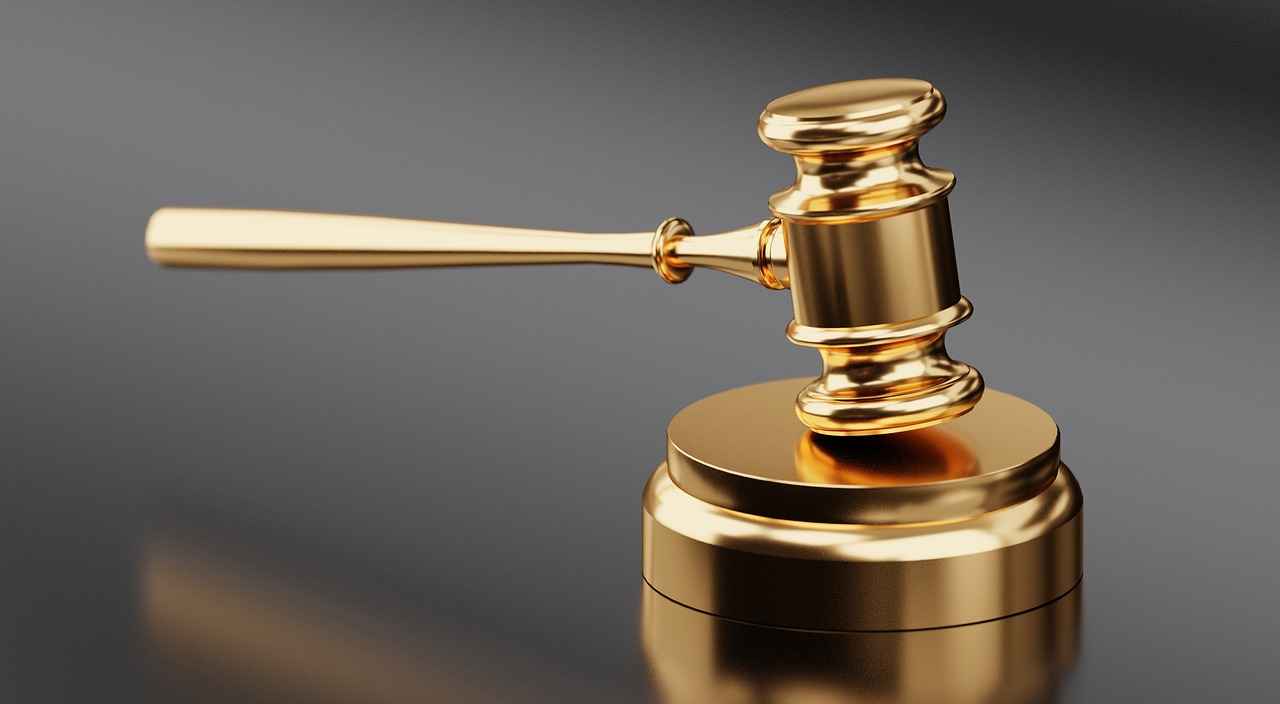
Understanding Defamation: Libel and Slander
Defamation is a serious legal issue that affects individuals and businesses alike. It encompasses any false statements that can harm a person’s or entity’s reputation. Understanding the differences between libel and slander is crucial for anyone considering legal action in these cases. In this section, we will explore the nuances of defamation law, the types of statements that qualify, and how to find the right legal representation.
Defamation refers to any false statement made about a person or organization that damages their reputation. It can be categorized into two types: libel and slander. Libel involves written statements, while slander pertains to spoken statements. Both forms of defamation can lead to significant emotional and financial harm for the victim.
Libel is a form of defamation that occurs when false statements are published in a permanent medium, such as newspapers, books, or online articles. To prove libel, the plaintiff must demonstrate that the statement was false, damaging, and made with a degree of fault, which can range from negligence to actual malice. Examples of libel include false accusations of criminal behavior, statements that harm a person’s professional reputation, or claims that lead to public ridicule.
Slander, on the other hand, involves temporary forms of defamation, typically spoken words. Like libel, the victim must prove that the statement was false and damaging. However, slander cases can be more challenging to prove due to the transient nature of spoken words. Examples of slander include false statements made during a conversation or in a public speech that harm someone’s reputation.
When dealing with defamation cases, selecting the right attorney is essential. Here are some tips to help you find a qualified legal representative:
- Look for Experience: Seek attorneys who specialize in defamation cases and have a proven track record of handling similar cases.
- Check Credentials: Verify the attorney’s education, bar admissions, and any relevant certifications.
- Read Reviews: Look for client testimonials and reviews on platforms like Avvo or Martindale-Hubbell to gauge their reputation.
- Consultation: Schedule initial consultations to discuss your case. This will help you assess their communication style and understanding of your situation.
- Fee Structure: Understand their fee structure, whether it’s hourly, contingency-based, or flat fees, to avoid surprises later on.
While searching for legal representation, be aware of potential red flags:
- Lack of Specialization: Avoid attorneys who do not specialize in defamation law.
- Poor Communication: If an attorney is unresponsive or fails to communicate clearly during initial consultations, it may indicate future issues.
- Negative Reviews: Be cautious of attorneys with consistently poor reviews or complaints against them.
- Pressure Tactics: Avoid attorneys who pressure you into making quick decisions or signing contracts without fully understanding the terms.
In conclusion, understanding the intricacies of defamation law, particularly the distinctions between libel and slander, is essential for anyone considering legal action. By choosing the right legal representation, you can ensure that your rights are protected and that you have the best chance of achieving a favorable outcome in your case.

Employment Disputes: Key Considerations
Employment disputes are a significant area of concern for both employees and employers. These disputes can stem from various issues such as wrongful termination, discrimination, harassment, and wage disputes. Understanding these issues is crucial for anyone navigating the complex landscape of employment law.
When seeking legal representation, it is essential to find an attorney who specializes in employment law. This specialization is critical because employment law can be intricate, with various federal and state regulations that can significantly impact the outcome of a case.
Finding the Right Employment Attorney
- Specialization Matters: Look for attorneys who specifically focus on employment law. This ensures they are up-to-date with the latest laws and regulations.
- Experience: An attorney with a proven track record in handling employment disputes will have the necessary skills to navigate your case effectively.
- Client Reviews: Check online reviews and testimonials to gauge previous clients’ experiences. This can provide insight into the attorney’s effectiveness and approach.
- Initial Consultation: Many lawyers offer a free consultation. Use this opportunity to ask questions and assess their understanding of your situation.
- Fees and Costs: Understand the fee structure upfront. Some attorneys work on a contingency basis, meaning they only get paid if you win your case.
Common Employment Disputes
Employment disputes can arise from various situations. Here are some common issues:
- Wrongful Termination: This occurs when an employee is fired for illegal reasons, such as discrimination or retaliation for whistleblowing.
- Discrimination: Employees may face discrimination based on race, gender, age, or disability, which can lead to legal action.
- Harassment: Workplace harassment, whether sexual or otherwise, can create a hostile work environment, necessitating legal intervention.
- Wage and Hour Disputes: Issues related to unpaid wages, overtime pay, or misclassification of employees can also lead to disputes.
Where to Look for Employment Attorneys
In major metropolitan areas like New York City, Los Angeles, and Chicago, there are numerous resources available to help you find qualified employment attorneys:
- Online Directories: Websites like Avvo, FindLaw, and the American Bar Association’s directory can help you locate attorneys in your area.
- Local Bar Associations: Many local bar associations have referral services that can connect you with qualified attorneys who specialize in employment law.
- Networking: Ask friends, family, or colleagues for recommendations. Personal referrals can often lead to finding trustworthy legal representation.
Red Flags to Avoid
When selecting an attorney, it’s crucial to be aware of potential red flags:
- Lack of Experience: Avoid attorneys who do not specialize in employment law or have little experience in handling similar cases.
- Poor Communication: If an attorney is unresponsive during initial consultations, it may indicate how they will handle your case.
- Unclear Fee Structures: Be wary of attorneys who cannot clearly explain their fees or who require large upfront payments without a clear agreement.
In conclusion, employment disputes can be complex and emotionally taxing. Finding the right attorney can make a significant difference in the outcome of your case. By focusing on specialization, experience, and client testimonials, you can identify a legal professional who will advocate for your rights effectively.

Product Liability: What to Look For
Product liability cases are critical in ensuring that consumers are protected from injuries caused by defective products. These cases can arise from a variety of issues, including design flaws, manufacturing defects, and inadequate warnings or instructions. Understanding the nuances of product liability is essential for anyone who has suffered harm due to a faulty product.
What Constitutes Product Liability?
Product liability is rooted in the principle that manufacturers, distributors, and retailers are responsible for ensuring that their products are safe for consumer use. There are three main types of product defects that can lead to liability:
- Design Defects: These occur when the product is inherently unsafe due to its design, even if it is manufactured correctly.
- Manufacturing Defects: These defects arise during the production process, resulting in a product that deviates from its intended design.
- Marketing Defects: This includes improper labeling, insufficient instructions, or failure to warn consumers about potential risks associated with the product.
Each type of defect requires a different legal strategy, making it essential to consult with an attorney who specializes in product liability cases.
How to Select a Qualified Attorney for Your Case
Choosing the right attorney can significantly impact the outcome of your product liability case. Here are some key factors to consider:
- Experience: Look for attorneys who have a proven track record in handling product liability cases. Experience in similar cases can provide insights into the complexities involved.
- Specialization: Ensure that the attorney specializes in personal injury law, particularly product liability. This specialization is crucial for navigating the specific legal requirements.
- Reputation: Research online reviews, testimonials, and ratings from previous clients. A strong reputation can indicate reliability and effectiveness.
- Communication: Your attorney should be approachable and willing to explain the legal process in understandable terms. Clear communication is vital for a successful attorney-client relationship.
- Initial Consultation: Many attorneys offer free initial consultations. Use this opportunity to assess their expertise and see if they are a good fit for your needs.
Additionally, consider the attorney’s fee structure. Most personal injury attorneys work on a contingency fee basis, meaning they only get paid if you win your case. Ensure you understand the terms before signing any agreements.
In summary, product liability cases can be complex and require the expertise of a qualified attorney. By understanding what constitutes product liability and knowing how to select the right legal representation, you can better navigate the challenges of your case and seek the justice you deserve.

Wrongful Death: Seeking Justice
Wrongful death claims can be particularly challenging, both emotionally and legally. These cases arise when an individual dies due to the negligence or misconduct of another party, leading to significant grief and financial burdens for the surviving family members. Understanding the intricacies of wrongful death claims is essential for those seeking justice. This section will guide you through the process of finding an experienced attorney who is sensitive to the emotional weight of these cases.
First and foremost, it is crucial to find an attorney who specializes in wrongful death claims and has a proven track record in this area. Start by seeking referrals from friends, family, or professionals who have had similar experiences. You can also utilize online platforms such as Avvo or FindLaw to search for attorneys based on their specialties and client reviews.
When evaluating potential attorneys, consider their experience with wrongful death cases specifically. Ask questions such as:
- How many wrongful death cases have you handled?
- What were the outcomes of those cases?
- Do you have experience negotiating settlements and going to trial?
Additionally, assess the attorney’s communication style. It is essential to have a lawyer who is not only knowledgeable but also empathetic and willing to explain the legal process in understandable terms. A good attorney should be able to provide clear answers to your questions and keep you informed throughout the case.
Another important factor is the attorney’s fee structure. Most wrongful death attorneys work on a contingency fee basis, meaning they only get paid if you win your case. Make sure to discuss the fee arrangement upfront and clarify any additional costs that may arise during the legal process.
Be wary of any attorney who makes unrealistic promises or guarantees regarding the outcome of your case. Legal matters, especially wrongful death claims, can be unpredictable, and a reputable attorney will provide a realistic assessment based on the specifics of your situation.
Finally, trust your instincts. It is vital to feel comfortable and confident in your attorney’s abilities. The emotional toll of a wrongful death claim can be overwhelming, and having a supportive legal professional by your side can make a significant difference. Take the time to meet with multiple attorneys before making your decision, and choose one who not only possesses the necessary legal expertise but also resonates with you on a personal level.
In summary, finding the right attorney for a wrongful death claim involves careful consideration of their experience, communication style, fee structure, and your personal comfort level. By following these guidelines, you can increase your chances of securing a legal representative who will advocate fiercely for your rights and help you navigate the complexities of seeking justice for your loved one.

Class Action Lawsuits: An Overview
Class action lawsuits are a powerful legal tool that allows a group of individuals with similar grievances to collectively sue a defendant. These lawsuits are often employed in cases where individual claims may be too small to justify separate legal actions, such as consumer fraud, environmental disasters, or employment discrimination. This section delves into the intricacies of class action lawsuits, including their structure, benefits, and the process of finding an experienced attorney to navigate this complex legal landscape.
The fundamental premise of a class action is that it consolidates numerous claims into a single lawsuit. This not only streamlines the judicial process but also enhances the efficiency of legal representation. By pooling resources, plaintiffs can afford experienced legal counsel and share the costs associated with litigation. The court typically certifies a class action if it determines that the claims share common legal or factual questions, making it more efficient to resolve them collectively.
One of the primary benefits of class action lawsuits is their potential for significant financial recovery. For instance, in cases of defective products, consumers who may have suffered minor damages individually can collectively seek compensation for their losses. Additionally, class actions can lead to broader changes in corporate practices, as companies may be incentivized to alter their policies to avoid similar lawsuits in the future.
However, navigating the class action process can be daunting. It is crucial to find an attorney with specific experience in handling class action lawsuits. Here are some steps to help you identify the right legal representation:
- Research Law Firms: Look for law firms that specialize in class actions. Websites often list their areas of expertise, and you can find testimonials from previous clients.
- Check Credentials: Ensure the attorney has a proven track record in class action cases. Look for their involvement in past cases, especially those that were successfully resolved.
- Consult Local Bar Associations: Many state bar associations provide referral services that can connect you with attorneys who specialize in specific areas of law, including class actions.
- Ask About Fees: Class action attorneys typically work on a contingency fee basis, meaning they only get paid if you win. Be sure to clarify their fee structure and any additional costs that may arise.
- Evaluate Communication: Effective communication is key in any legal matter. Choose an attorney who is responsive to your queries and takes the time to explain the process clearly.
When considering a class action lawsuit, it is also essential to be aware of potential red flags. Be cautious of attorneys who promise guaranteed outcomes or who seem more interested in signing you up than in understanding your case. Additionally, avoid firms that lack transparency regarding their fees and the process involved.
In summary, class action lawsuits serve as a vital mechanism for individuals seeking justice against larger entities. By understanding the structure of these lawsuits and taking the necessary steps to find a qualified attorney, you can effectively navigate this complex legal terrain. Whether in Fort Worth or any major city, ensuring you have the right legal representation can make all the difference in the outcome of your case.

Assault and Battery: Legal Implications
Assault and battery cases are serious legal matters that can have profound implications for both the victim and the accused. Understanding the legal landscape surrounding these offenses is crucial for anyone involved in such a situation. In this section, we will explore the definitions, potential consequences, and the importance of hiring the right attorney.
What Are Assault and Battery?
While often used interchangeably, assault and battery have distinct legal meanings. Assault typically refers to the act of threatening or attempting to cause physical harm to another person, creating a reasonable fear of imminent harm. Battery, on the other hand, involves the actual physical contact or harm inflicted upon another person. Both can lead to criminal charges and civil lawsuits, making it essential to understand the nuances of each.
Legal Consequences of Assault and Battery
- Criminal Charges: Depending on the severity of the act, individuals can face misdemeanor or felony charges. Factors such as the use of a weapon, intent, and the extent of injuries can influence the severity of the charges.
- Civil Suits: Victims of assault and battery may choose to file civil lawsuits seeking compensation for medical expenses, emotional distress, and other damages. Winning a civil case can lead to significant financial repercussions for the perpetrator.
Finding the Right Attorney
Choosing the right attorney is critical in navigating assault and battery cases. Here are some key considerations:
- Experience: Look for attorneys who specialize in criminal law and have experience with assault and battery cases. Their familiarity with local laws and court systems can be invaluable.
- Reputation: Research potential attorneys through online reviews, legal directories, and referrals from trusted sources. A strong reputation can indicate reliability and effectiveness.
- Consultation: Many attorneys offer free consultations. Use this opportunity to discuss your case, gauge their understanding, and assess their communication style.
- Fees: Understand the attorney’s fee structure. Some may work on a contingency basis, while others charge hourly rates. Make sure to clarify all costs upfront to avoid surprises.
Red Flags to Avoid
When searching for legal representation, be wary of the following:
- Lack of Specialization: Avoid attorneys who do not specialize in criminal law or have limited experience with assault and battery cases.
- Poor Communication: If an attorney is unresponsive or fails to communicate effectively during initial consultations, it may indicate future challenges.
- Pressure Tactics: Be cautious of attorneys who pressure you into making quick decisions or signing contracts without fully understanding the implications.
Conclusion
In assault and battery cases, the stakes are high, and the legal implications can be severe. Understanding the definitions, potential consequences, and how to find the right attorney can significantly impact the outcome of your case. Always take the time to research and choose an attorney who is not only qualified but also someone you feel comfortable working with throughout the legal process.

Understanding Drug Offenses
Drug offenses encompass a broad spectrum of activities, ranging from simple possession of controlled substances to large-scale trafficking operations. The legal consequences of these offenses can vary significantly based on the type and quantity of drugs involved, the offender’s criminal history, and the jurisdiction in which the offense occurred. Understanding the different types of drug-related charges is essential for anyone facing such allegations.
- Possession: This is the most common drug offense and can involve possession of illegal drugs for personal use. Penalties can range from fines to imprisonment, depending on the drug’s classification.
- Distribution: Selling or distributing drugs is a more serious offense than possession. Charges can escalate based on the amount of drugs involved and whether the distribution occurred near schools or other protected areas.
- Manufacturing: This involves the production of illegal drugs and carries severe penalties. Law enforcement agencies often conduct thorough investigations to uncover manufacturing operations.
- Trafficking: Drug trafficking is one of the most serious drug offenses, involving the illegal importation or exportation of controlled substances. This charge can result in lengthy prison sentences and substantial fines.
- Possession with Intent to Distribute: If an individual is found with a significant quantity of drugs, they may face charges of possession with intent to distribute, which is treated more seriously than simple possession.
When it comes to navigating the complexities of drug offenses, choosing a competent attorney is crucial. Here are some important considerations:
- Experience: Look for attorneys who specialize in drug offenses and have a proven track record of handling similar cases. Their familiarity with local laws and court procedures can be invaluable.
- Reputation: Research potential attorneys online, checking reviews and ratings on legal platforms. Personal recommendations from friends or family can also provide insight into an attorney’s reliability.
- Consultation: Many attorneys offer free initial consultations. Use this opportunity to discuss your case and assess the attorney’s approach and understanding of your situation.
- Communication: Effective communication is essential throughout the legal process. Ensure that the attorney is responsive and willing to explain legal jargon in a way that you can understand.
- Fees: Understand the attorney’s fee structure upfront. Some may charge a flat fee, while others bill hourly. Be clear about any additional costs that may arise during the legal process.
In addition to these factors, it’s important to be aware of potential red flags when hiring a legal professional. Be cautious of attorneys who guarantee specific outcomes, as no lawyer can predict the result of a case with certainty. Similarly, be wary of those who pressure you into making quick decisions without providing adequate time for consideration.
In conclusion, drug offenses can have severe legal repercussions, but with the right legal representation, individuals can navigate these challenges more effectively. By understanding the different types of drug-related charges and taking the time to choose a qualified attorney, individuals can better protect their rights and interests in the face of legal adversity.

Theft and Burglary: Legal Perspectives
Theft and burglary are two distinct criminal offenses that can lead to severe legal consequences. While both involve the unlawful taking of someone else’s property, the circumstances and intentions behind these actions differ significantly. Understanding these distinctions is crucial for anyone facing charges or seeking legal representation.
Theft is generally defined as the unlawful taking of someone else’s property with the intent to permanently deprive the owner of it. This crime can occur in various forms, including shoplifting, pickpocketing, and identity theft. The severity of the charge often depends on the value of the stolen property. For instance, stealing a high-value item may result in felony charges, while taking something of lesser value could lead to misdemeanor charges.
In contrast, burglary involves entering a building or structure unlawfully with the intent to commit a crime inside, typically theft. This means that even if no property is stolen, an individual can still be charged with burglary if they entered a property with the intent to commit a crime. Burglary charges can also vary in severity, often classified as first, second, or third-degree offenses based on factors such as whether the property was occupied at the time of the crime.
When dealing with theft or burglary charges, it is essential to find an effective legal representative. Here are some steps to consider:
- Research Local Attorneys: Start by looking for attorneys who specialize in criminal defense, particularly those with experience in handling theft and burglary cases.
- Check Credentials: Verify their qualifications, including education, years of practice, and any relevant certifications. Membership in professional organizations can also indicate a commitment to staying updated on legal practices.
- Read Reviews: Look for client reviews and testimonials to gauge the attorney’s reputation and success rate in similar cases.
- Schedule Consultations: Many attorneys offer free initial consultations. Use this opportunity to discuss your case and assess whether you feel comfortable with their approach.
- Ask About Their Strategy: Inquire about how they plan to handle your case. A good attorney should be able to explain their strategy clearly and provide realistic expectations.
Additionally, be cautious of red flags when hiring a legal professional. Avoid attorneys who make unrealistic promises or guarantee specific outcomes, as legal cases can be unpredictable. It’s also wise to steer clear of those who pressure you into making quick decisions or who lack transparency about their fees and billing practices.
In summary, understanding the nuances between theft and burglary is essential for anyone facing legal challenges in this area. By taking the time to research and select a qualified attorney, individuals can better navigate the complexities of the legal system and work towards a favorable resolution.
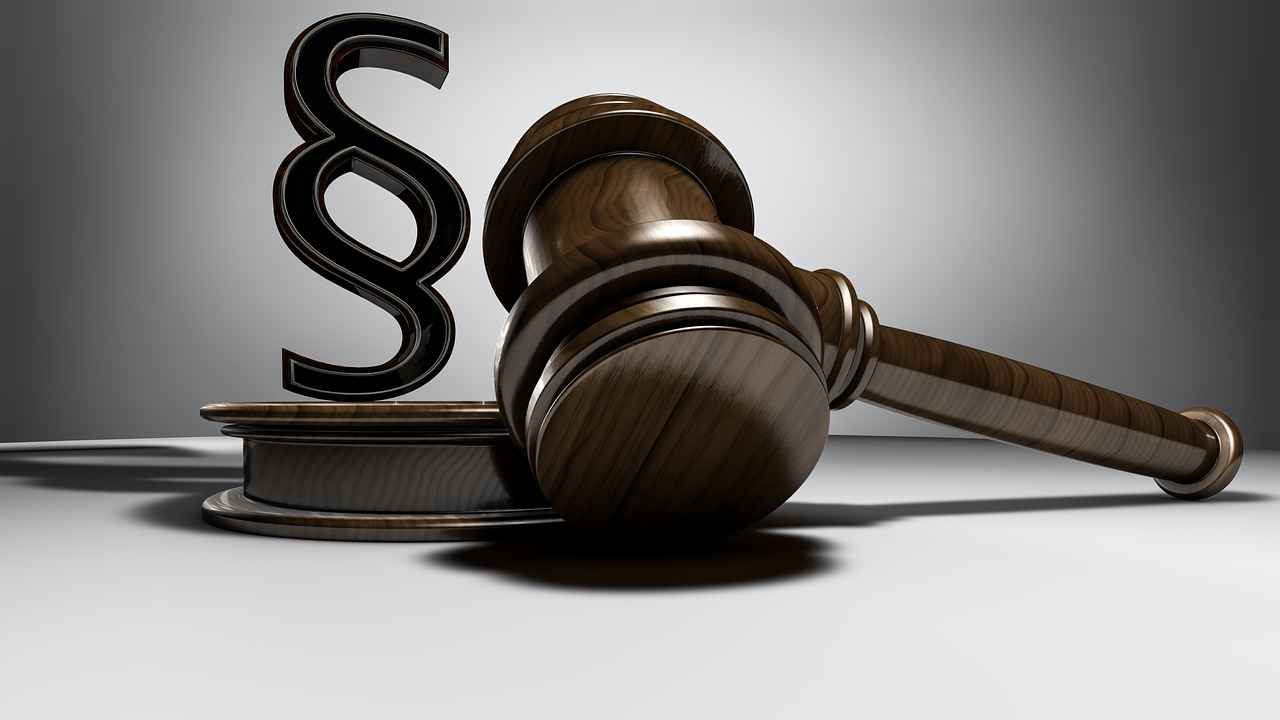
Fraud and Embezzlement: Key Insights
Fraud and embezzlement are serious crimes that can have devastating effects on individuals and businesses alike. These crimes are often categorized as white-collar crimes, which typically involve deceit and are committed for financial gain. Understanding the complexities of these offenses is crucial for anyone facing allegations or seeking to navigate the legal landscape surrounding them.
Fraud generally refers to any intentional deception made for personal gain, while embezzlement involves the misappropriation of funds placed in one’s trust. Both require specialized legal knowledge due to their intricate nature and the potential for severe penalties. Individuals accused of these crimes may face hefty fines, restitution, and even imprisonment. Therefore, finding the right attorney with experience in white-collar crime is essential.
When searching for a qualified attorney, consider the following factors:
- Experience in White-Collar Crime: Look for attorneys who specialize in fraud and embezzlement cases. Their expertise can make a significant difference in the outcome of your case.
- Track Record: Review the attorney’s history of handling similar cases. A successful track record can indicate their ability to navigate complex legal issues effectively.
- Credentials: Verify their educational background and any relevant certifications. Membership in professional organizations, such as the National Association of Criminal Defense Lawyers, can also be a positive sign.
- Client Reviews: Read testimonials and reviews from former clients. This feedback can provide insight into the attorney’s communication style, responsiveness, and effectiveness.
- Initial Consultation: Many attorneys offer free consultations. Use this opportunity to gauge their understanding of your case and their approach to handling it.
Moreover, be cautious of red flags when choosing a legal representative:
- Promises of Guaranteed Outcomes: No attorney can guarantee results, especially in complex cases like fraud and embezzlement.
- High Pressure Tactics: If an attorney pressures you to sign a contract immediately, consider it a warning sign.
- Lack of Transparency: Ensure that the attorney is open about their fees and the potential costs involved in your case.
In major metropolitan areas like New York City, Los Angeles, and Chicago, the competition among attorneys can be fierce. Utilize online platforms such as Avvo or FindLaw to compare attorneys based on ratings and reviews. Additionally, local bar associations often provide referral services that can help connect you with reputable lawyers in your area.
In conclusion, navigating fraud and embezzlement cases requires careful consideration when selecting legal representation. By focusing on experience, credentials, and client feedback, you can find an attorney who is well-equipped to handle the complexities of your case. Make sure to take your time in the selection process, as the right legal advocate can significantly impact the outcome of your situation.
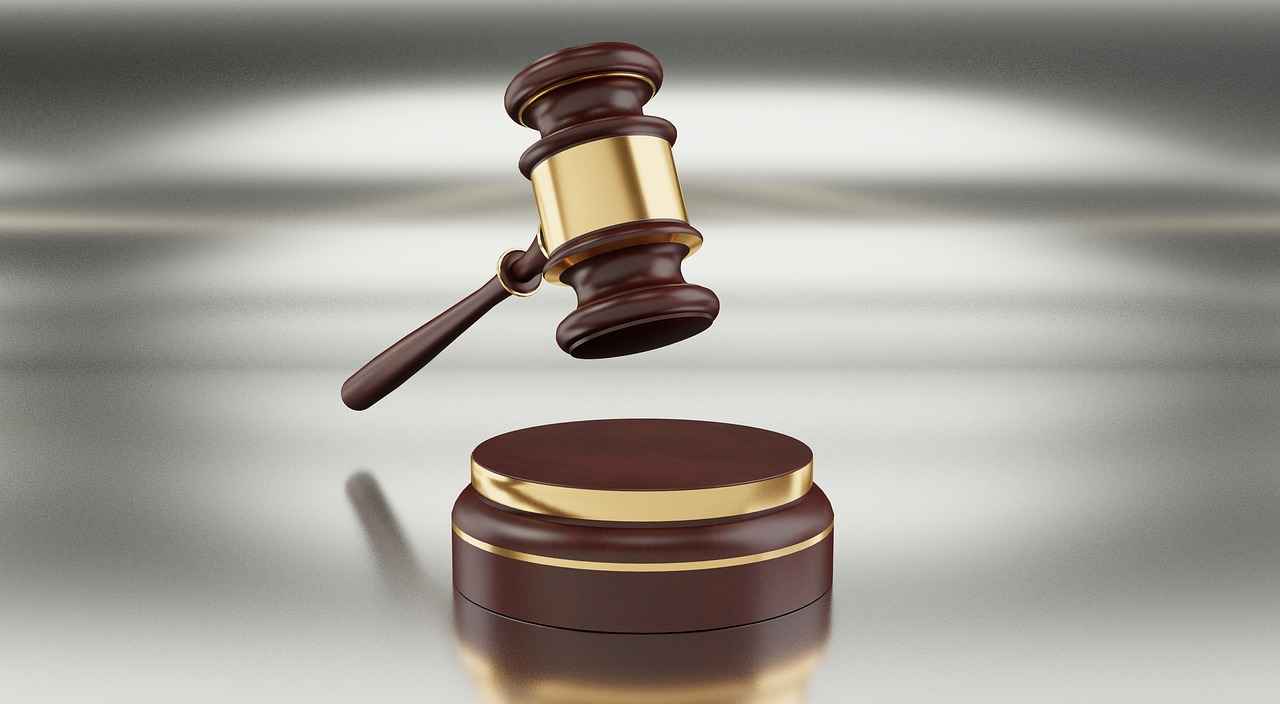
Murder and Homicide: Legal Defense Strategies
Murder and homicide cases represent some of the most severe criminal offenses within the legal system. The stakes are incredibly high, often resulting in life imprisonment or even the death penalty. In such high-pressure situations, securing a skilled defense attorney is not just advisable; it is essential. This section will delve into the complexities of these cases and provide guidance on how to find the right legal representation.
When faced with a murder or homicide charge, the accused often feels overwhelmed and uncertain about the legal process. Understanding the various types of charges—such as first-degree murder, second-degree murder, and manslaughter—is crucial. Each type carries different legal implications and potential penalties. A proficient attorney will not only understand these nuances but will also be able to craft a defense strategy tailored to the specific circumstances of the case.
One of the primary strategies in defending against murder and homicide charges is to establish reasonable doubt. This can involve questioning the evidence presented by the prosecution, including eyewitness testimonies and forensic data. A competent attorney will utilize expert witnesses, such as forensic analysts and psychologists, to challenge the prosecution’s case and reinforce the defense’s position.
Additionally, self-defense claims can be a crucial aspect of murder cases. If the accused can demonstrate that they acted in self-defense or defense of others, it may lead to a complete acquittal or a reduction in charges. Understanding state laws regarding self-defense is vital, as these laws can vary significantly from one jurisdiction to another.
Finding the right defense attorney in a murder or homicide case requires careful consideration. Here are some essential steps to ensure you choose a qualified legal professional:
- Experience and Specialization: Look for attorneys who specialize in criminal defense, particularly in murder and homicide cases. Their experience will be invaluable in navigating the complexities of the legal system.
- Track Record: Review the attorney’s past cases and outcomes. A strong history of successfully defending clients in serious criminal cases can provide peace of mind.
- Client Reviews: Online reviews and testimonials can offer insights into the attorney’s reputation and client satisfaction. Platforms such as Avvo and Martindale-Hubbell are excellent resources for this information.
- Consultation: Schedule initial consultations with potential attorneys. This meeting allows you to assess their communication style, approach to your case, and overall compatibility.
- Fees and Payment Structures: Understand the attorney’s fee structure before hiring. Many criminal defense attorneys work on a flat fee basis, while others may charge hourly rates. Ensure that you are comfortable with the financial arrangement.
It’s also important to be aware of red flags when hiring a defense attorney. Avoid attorneys who:
- Promise guaranteed outcomes, as no attorney can predict the result of a criminal trial.
- Are vague about their fees or who pressure you into making quick decisions.
- Have a poor reputation within the legal community or have faced disciplinary actions.
In summary, murder and homicide cases demand a defense attorney with a deep understanding of criminal law and a proven track record in handling serious offenses. By following the steps outlined and remaining vigilant against red flags, individuals can find the right legal representation to navigate these challenging and often life-altering situations.

DUI/DWI: Navigating Legal Consequences
DUI/DWI charges can have a profound impact on an individual’s life, leading to severe penalties that may include hefty fines, license suspension, and even imprisonment. In the United States, the legal landscape surrounding these offenses is complex, and understanding it is crucial for anyone facing such charges. This section aims to provide insight into the legal ramifications of DUI/DWI offenses and offer guidance on how to find a specialized attorney in this field.
Driving Under the Influence (DUI) and Driving While Intoxicated (DWI) laws vary significantly from state to state. Generally, these laws are designed to deter individuals from operating a vehicle while impaired by alcohol or drugs. The penalties for DUI/DWI can escalate based on various factors, including the blood alcohol content (BAC) level, prior offenses, and whether any accidents or injuries occurred as a result. For example, a first-time offender may face fines and a short license suspension, while repeat offenders or those involved in accidents may encounter harsher penalties, including mandatory jail time.
When dealing with DUI/DWI charges, it is essential to seek legal representation as soon as possible. An attorney who specializes in DUI cases will have a deep understanding of the local laws and the intricacies of the legal system. Here are some steps to consider when searching for a qualified DUI attorney:
- Research Online: Utilize legal directories such as Avvo or Martindale-Hubbell to find attorneys who specialize in DUI/DWI cases in your area. Look for reviews and ratings to gauge their reputation.
- Check Credentials: Verify the attorney’s credentials, including their education, years of experience, and any specialized training in DUI law. Membership in professional organizations, such as the National College for DUI Defense, can also be a positive indicator.
- Consultation: Schedule an initial consultation to discuss your case. This meeting allows you to assess the attorney’s communication style, approach to your case, and overall compatibility.
- Ask About Their Strategy: Inquire about the attorney’s strategy for handling DUI cases. A knowledgeable attorney will provide insights into potential defenses and the likelihood of reducing charges or penalties.
- Discuss Fees: Understand the attorney’s fee structure upfront. Some attorneys may charge a flat fee, while others bill hourly. Ensure you know what services are included in the fee.
It is also essential to be aware of red flags when hiring a DUI attorney. Be cautious of attorneys who make unrealistic promises regarding the outcome of your case or those who pressure you into signing agreements without thoroughly discussing your options. Additionally, avoid attorneys who lack experience in DUI cases or do not seem familiar with the local court system.
In summary, navigating the legal consequences of DUI/DWI charges requires careful consideration and the right legal representation. By conducting thorough research, checking credentials, and asking the right questions, individuals can find a qualified attorney who will advocate for their rights and work towards the best possible outcome in their case.
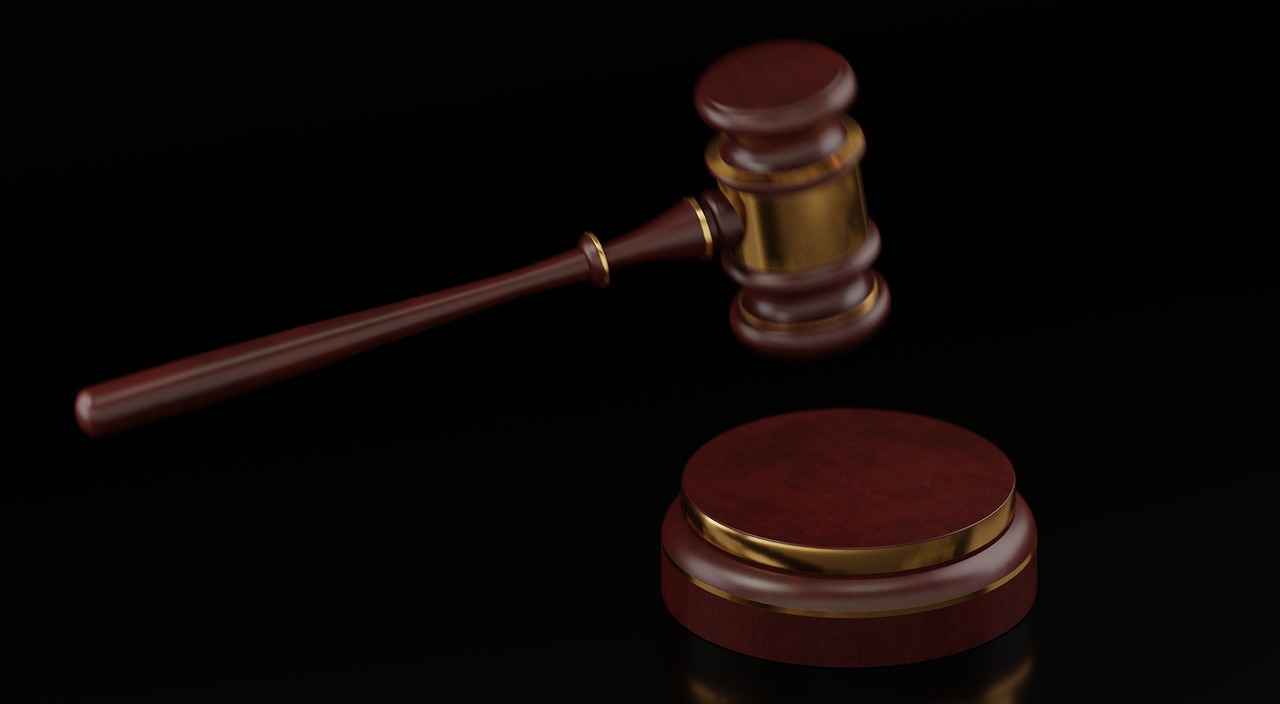
Domestic Violence: Legal Protections
Domestic violence is a serious issue that affects countless individuals across the United States. When faced with such circumstances, it is crucial to understand the legal protections available and the steps to take in finding the right attorney to navigate these sensitive matters. Legal intervention can provide immediate support and safety for victims, making it essential to act promptly.
Victims of domestic violence often experience physical, emotional, and psychological abuse, which can escalate if not addressed. Fortunately, there are several legal protections in place designed to safeguard victims. These include:
- Restraining Orders: Also known as protective orders, these legal documents can prohibit the abuser from contacting the victim or coming near their home, workplace, or other specified locations.
- Emergency Protective Orders: In urgent situations, courts can issue temporary orders that provide immediate protection for the victim, often lasting only a few days until a more permanent order can be established.
- Legal Representation: Victims have the right to seek legal counsel to help them navigate the complexities of domestic violence cases, including filing for restraining orders and understanding their rights.
- Criminal Charges: In cases of severe abuse, victims can report the incident to law enforcement, leading to potential criminal charges against the abuser.
Finding an attorney who specializes in domestic violence cases is critical for ensuring that your rights are protected and that you receive the support you need. Here are some effective strategies for locating a qualified attorney:
- Referrals: Ask friends, family, or support groups for recommendations. Personal experiences can lead you to trustworthy attorneys who have successfully handled similar cases.
- Bar Associations: Contact your local or state bar association for a list of attorneys who specialize in domestic violence or family law. Many bar associations offer referral services that can connect you with qualified professionals.
- Online Platforms: Websites like Avvo, FindLaw, and LegalMatch allow you to search for attorneys based on their specialties and client reviews. These platforms often provide valuable insights into an attorney’s experience and success rate.
- Consultation Meetings: Schedule initial consultations with potential attorneys. This meeting is an opportunity to discuss your case, assess the attorney’s understanding of domestic violence issues, and evaluate their communication style.
When selecting an attorney, consider the following credentials and qualities:
- Experience: Look for attorneys who have a proven track record in handling domestic violence cases. Their familiarity with the legal system can be invaluable.
- Specialization: Choose an attorney who specializes in family law or domestic violence. Specialized knowledge can make a significant difference in the outcome of your case.
- Empathy: A good attorney should not only be knowledgeable but also compassionate. They should understand the emotional toll domestic violence takes on victims and provide a supportive environment.
- Transparent Fees: Ensure that the attorney is upfront about their fees and any additional costs associated with your case. Understanding the financial aspects can help you avoid unexpected expenses.
While seeking legal assistance, be aware of red flags that may indicate a less-than-reputable attorney:
- Lack of Communication: If an attorney is difficult to reach or does not respond to your inquiries in a timely manner, it may be a sign of poor client service.
- Pressure Tactics: Be wary of attorneys who pressure you into making quick decisions or signing contracts without fully understanding the implications.
- Negative Reviews: Research online reviews and testimonials. Consistent negative feedback can be a warning sign about an attorney’s professionalism and effectiveness.
In conclusion, navigating the legal landscape surrounding domestic violence requires careful consideration and the right support. By understanding the protections available and following the outlined strategies for finding a qualified attorney, victims can take significant steps toward ensuring their safety and securing justice.
Frequently Asked Questions
- What should I look for in a personal injury lawyer?
When searching for a personal injury lawyer, consider their experience, track record, and client reviews. It’s essential to find someone who specializes in personal injury cases and has a solid understanding of the laws in Fort Worth.
- How can I determine if I have a medical malpractice case?
To determine if you have a medical malpractice case, assess whether a healthcare provider failed to meet the standard of care, resulting in injury. Consulting with a specialized attorney can help clarify your situation and options.
- What are the common causes of landlord-tenant disputes?
Landlord-tenant disputes often arise from issues like non-payment of rent, property maintenance, or lease violations. Understanding your rights and responsibilities can help resolve these conflicts more effectively.
- What is the process for filing a class action lawsuit?
The process for filing a class action lawsuit involves gathering a group of people with similar grievances, selecting a representative plaintiff, and filing a complaint in court. It’s crucial to have an attorney experienced in class actions to guide you through this complex process.
- How do I choose the right attorney for a DUI case?
Choosing the right attorney for a DUI case involves looking for someone with specific experience in DUI law, a good reputation, and a successful track record. Don’t hesitate to ask for consultations to find the best fit for your needs.














